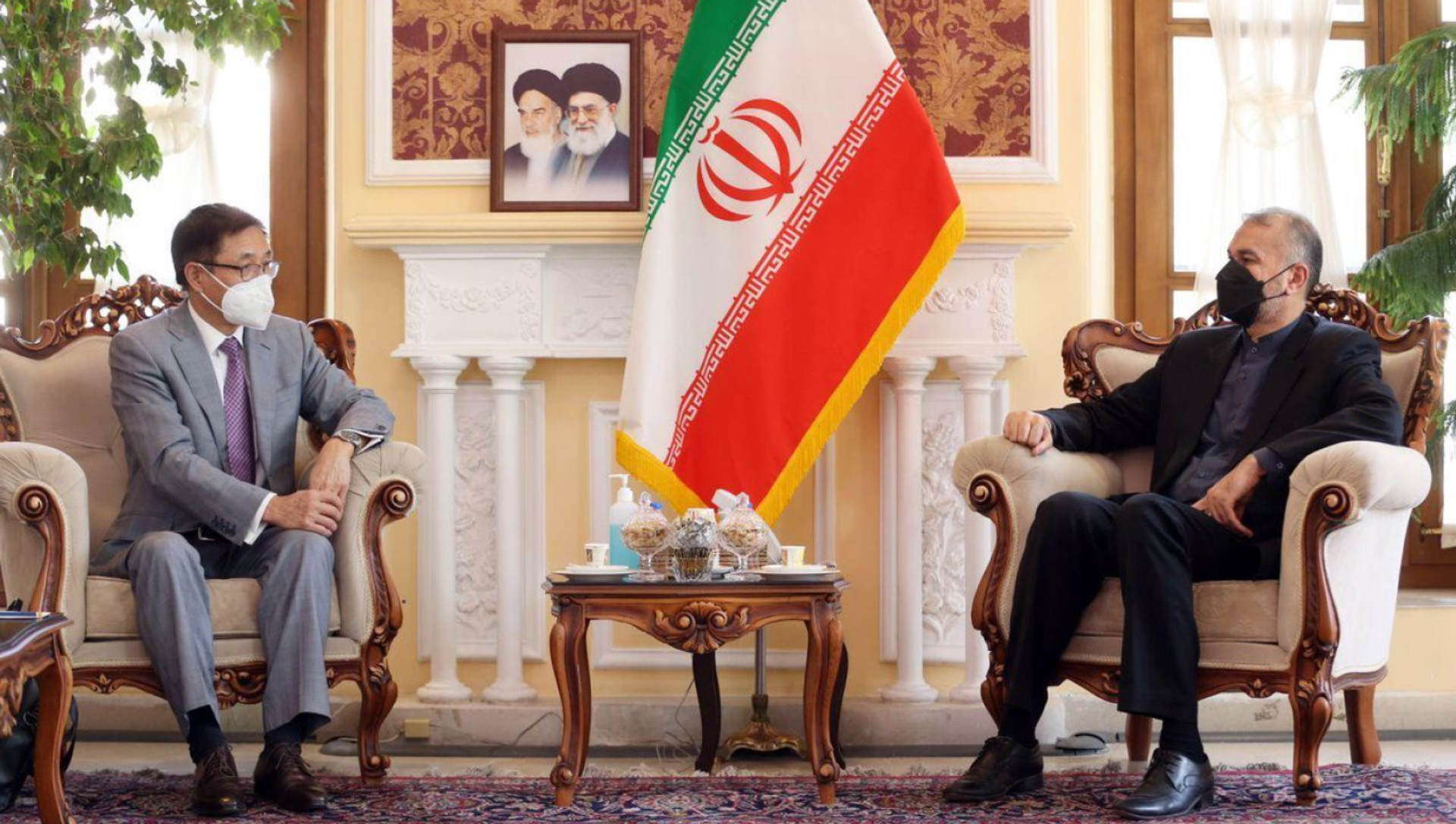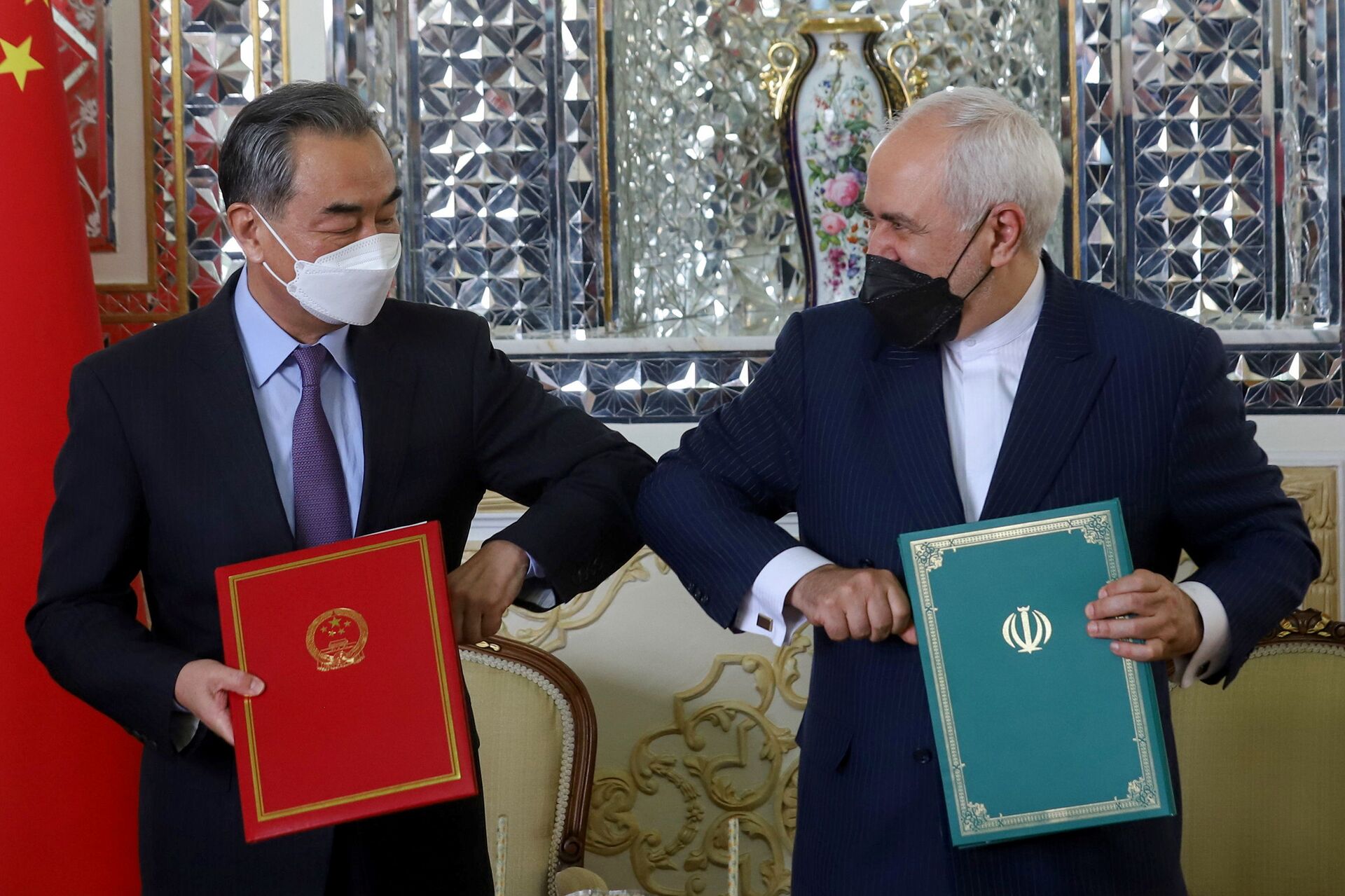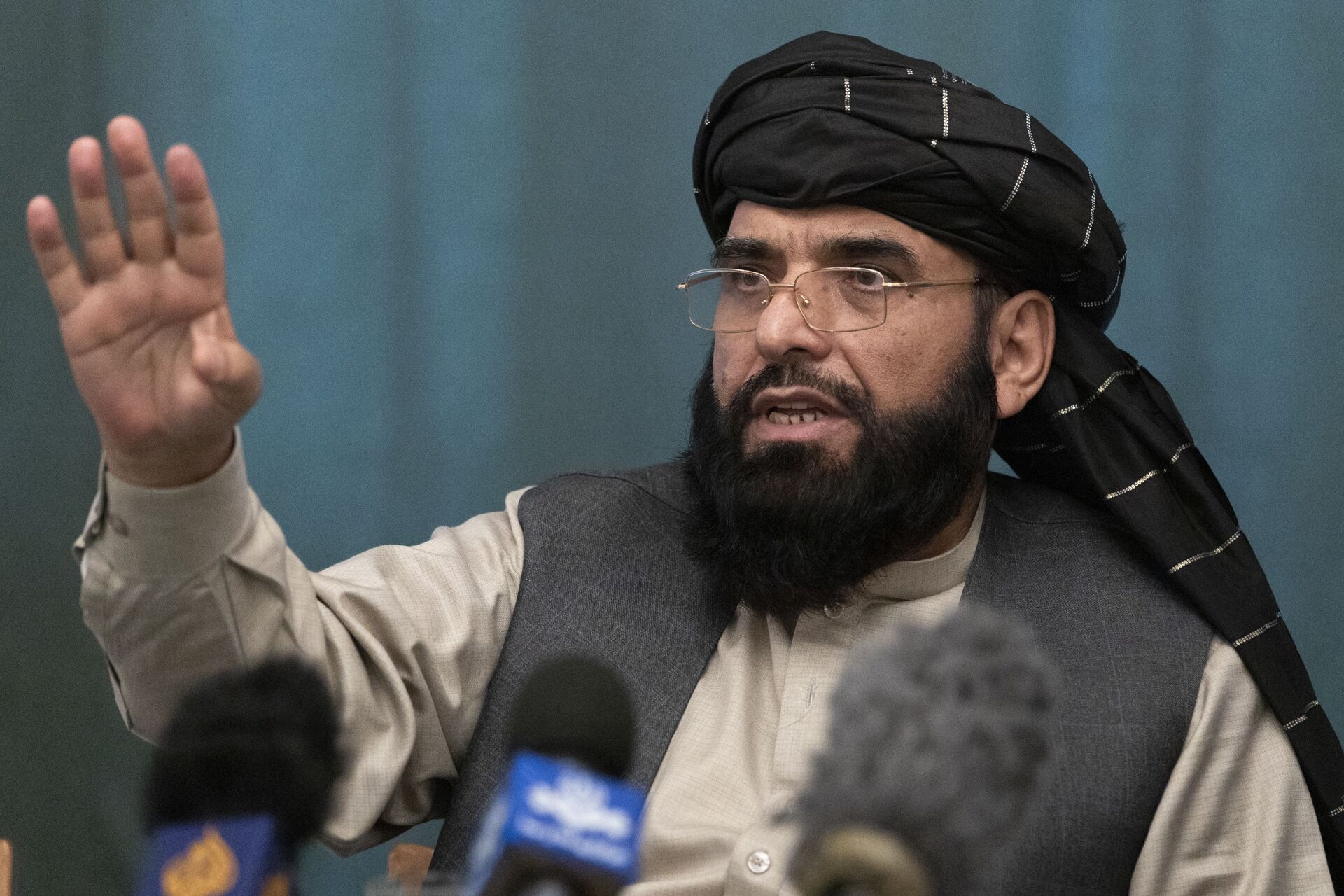Iran, China to Cooperate on Regional Stabilization as Beijing Urges Taliban to Keep Promises

© IRNA
Subscribe
A flurry of communication across Eurasia has followed the quick collapse of the US-backed Afghan government over the last two weeks as regional powers struggle to figure out their orientation to the new Taliban government, which has hinted it might not rule the same way as it did before, which earned it few friends and many enemies.
Beijing and Tehran are rushing to ensure stability in Central Asia after the Afghan capital of Kabul suddenly surrendered to the Taliban without a fight on Sunday, something American and Afghan officials had publicly stated they believed wouldn’t happen for at least a month.
On Wednesday, Chinese Foreign Minister Wang Yi spoke with his Pakistani counterpart, Shah Mahmood Quresh, and on Thursday with his Turkish counterpart, Melvut Cavosoglu, about coordination on their Afghanistan policy.
“The leaders of the Taliban said they would solve the problems faced by the people and satisfy the people’s aspirations. This is sending a positive signal to the outside world,” Wang told Cavusoglu, adding that the militant group had made promises that it needed to translate into concrete policies.
A Taliban spokesperson told Chinese media last month that the group would not allow Afghanistan to become a base from which other nations could be attacked.
“To this end, the Afghanistan Taliban needs to completely cut off from all terrorist forces with a clear attitude and take measures to combat international terrorist organisations classified by the UN Security Council, including the East Turkestan Islamic Movement (ETIM),” Wang added, referring to the Islamic terrorist group active in Xinjiang Autonomous Region, which the Taliban has harbored across the border in Afghanistan several times in the past.
A readout of Wang’s and Quereshi’s talk said China and Pakistan “should support Afghanistan in its resolute fight against terrorism, and Afghanistan must not become a gathering place for terrorism again.”
“We should promote international cooperation involving Afghanistan in an orderly manner, establish various complementary mechanisms and expand consensus. In particular, we should give play to the unique role of neighboring countries, so as to push the situation in Afghanistan gradually into a virtuous circle,” Wang added.

Iran's Foreign Minister Mohammad Javad Zarif and China's Foreign Minister Wang Yi bump elbows during the signing ceremony of a 25-year cooperation agreement, in Tehran, Iran March 27, 2021.
© REUTERS / WANA NEWS AGENCY
Chinese President Xi Jinping also spoke with newly inaugurated Iranian President Ebrahim Raisi on Thursday, several days after China's special envoy for Afghanistan, Yue Xiaoyong, met with outgoing Iranian Foreign Minister Mohammad Javad Zarif and on Wednesday with the new foreign minister, Hossein Amirabdollahian.
Raisi told Xi that Iran is ready to cooperate with China to establish “security, stability and peace in Afghanistan” and to help the country with further development.
"We believe that the withdrawal of foreigners, as well as past experiences in the country, has highlighted the need for the support and participation of all Afghan groups to ensure the security and development of Afghanistan more than ever,” Raisi said, according to a readout by his office.
Same Old Taliban?
The first time the Taliban was in power, from 1996 until 2001, just four nations recognized their government as the legitimate representatives of the Afghan people - the UAE, Saudi Arabia, Pakistan, and Turkmenistan - and the Islamist militant group rushed to implement a strict form of Sharia law that left few rights for women and proscribed torture or death as punishment for many crimes.
On Thursday, the group again declared the country to be the Islamic Emirate of Afghanistan, reviving their old name, but they have also made certain promises to enact more inclusive policies, including inviting women to join government ministries for the first time and offering mass amnesties for current bureaucrats.
US President Joe Biden has urged that the Taliban hasn’t changed in 20 years, while his senior diplomats have noted they’ll believe Taliban promises when they see them.
By contrast, Chinese Foreign Ministry spokeswoman Hua Chunying urged on Thursday that “nothing stays unchanged” and that in order to understand and handle problems, one “should adopt a holistic, interconnected and developmental dialectical approach.”
“We should look at both the past and the present. We need to not only listen to what they say, but also look at what they do,” she said, adding that “the rapid evolution of the situation in Afghanistan also reveals how the outside world lacked objective judgment on the local situation and accurate understanding of the public opinion there. In this respect, some western countries in particular should learn some lessons.”

FILE - In this March 19, 2021 file photo, Suhail Shaheen, Afghan Taliban spokesman and a member of the negotiation team gestures while speaking during a joint news conference in Moscow, Russia. In an interview with The Associated Press Thursday, July 22, 2021
© AP Photo / Alexander Zemlianichenko
She added that while the situation “is not fully clear yet,” many other nations also believe the Taliban will not “repeat history” and that the group “is more clear-headed and rational than it was in power last time.”
It might seem paradoxical that Shiite Iran would be remotely friendly with the Sunni Taliban, who have persecuted Afghan Shiites in the past and even murdered nine Iranian diplomats in Mazar-i-Sharif in 1998. However, the two forces have come to a modicum of understanding in which neither wants the Americans around or for the region to fall into chaos.
Iranian officials “recognized that the Taliban inexorably is a part of realities on the ground,” Diako Hosseini of Tehran’s Center for Strategic Studies, which advises Raisi’s office, told Bloomberg on Thursday. “Continuing enmity between Iran and the Taliban could unleash a relentless clash on the border.”
Foad Izadi, a professor at the Faculty of World Studies at the University of Tehran, told the paper the Iranian government and military “realized some time ago that the Taliban were gaining strength” and “established a working relationship with the Taliban. It’s not because they particularly like them.”
Shanghai Pact Key to Integration Hopes
During the Taliban’s first time in power, any hope of regional integration would have had to occur bilaterally, but since 2003, the Shanghai Cooperation Organization (SCO or Shanghai Pact) has provided a foundation for networking across the Eurasian continent. Afghanistan has been an observer since 2012 and many of its neighbors, including China, Pakistan, Uzbekistan and Tajikistan, are also members of the pact.
Last week, Admiral Ali Shamkhani, secretary of Iran's Supreme National Security Council, announced only a few “technical formalities” remained before Tehran became the pact’s newest member.
Both Iran and Afghanistan lay along what Beijing has called the Silk Road Economic Belt portion of its massive Belt and Road Initiative infrastructure megaproject, and could provide alternate routes for other smaller projects like the China-Pakistan Economic Corridor (CPEC).
Well before the Taliban seizure of power, observers were already talking about the SCO’s potential to stabilize Afghanistan after the US withdrawal, which was expected to be complete by August 31. Plus, the country is already a part of a quadrilateral agreement with Pakistan, Tajikistan and China aimed at fighting terrorism.
However, if the Taliban wants to join the SOO, it will have to prove it can rule with “stable and healthy” Muslim policies, the same standards Wang laid out for Ghani’s exiled government last month. The SOO is slated to meet next month in Dushanbe.



